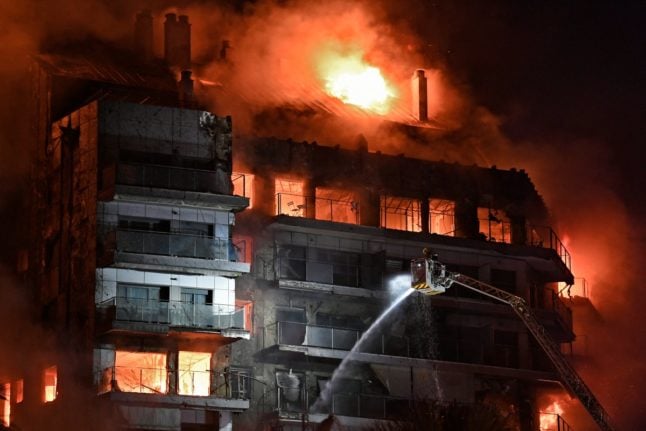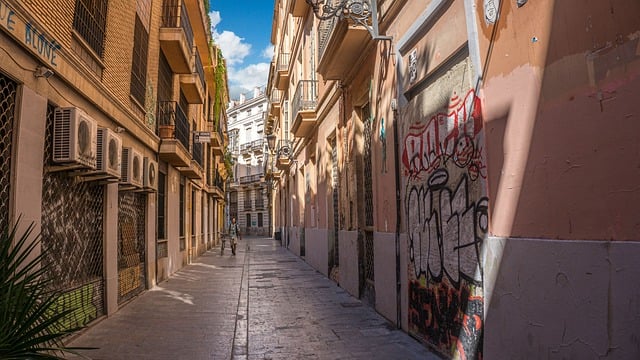“Forensic police have established that the causes of the fire were accidental and that it was probably caused by an electrical appliance in one of the apartments,” Maria Jose Catalá, mayor of Spain’s third-largest city, told reporters.
Catalá said an ongoing investigation has still to determine why the blaze, which devastated a 14-storey high-rise and an adjoining 10-storey block which together housed 138 flats, spread so quickly.
“The first results of the national police investigation show the fire probably originated from inside the kitchen and that it was caused by a household appliance,” Prefect Pilar Bernabe told the media.
READ ALSO: How safe are Spanish buildings when it comes to fire standards?
The fire, which spread lightning fast, sending clouds of black smoke high into the air over the western Campanar district, started on one of the middle floors and within 30 minutes had consumed the entire building, fuelled by strong winds of up to 60 kilometres (40 miles) per hour.
The tragedy left some 450 residents homeless.
Previously, some experts had suggested the fact the building was covered with highly flammable cladding could have accounted for the rapid spread of the blaze, drawing parallels with the 2017 Grenfell Tower disaster in London when 72 people died in a tower block fire blamed on highly-inflammable cladding.
Three days following the Valencia blaze, a child and two adults died in another fire inside a high-rise residential block in the Spanish seaside town of Villajoyosa some 150 kilometres (90 miles) further down Spain’s east coast.



 Please whitelist us to continue reading.
Please whitelist us to continue reading.
Member comments